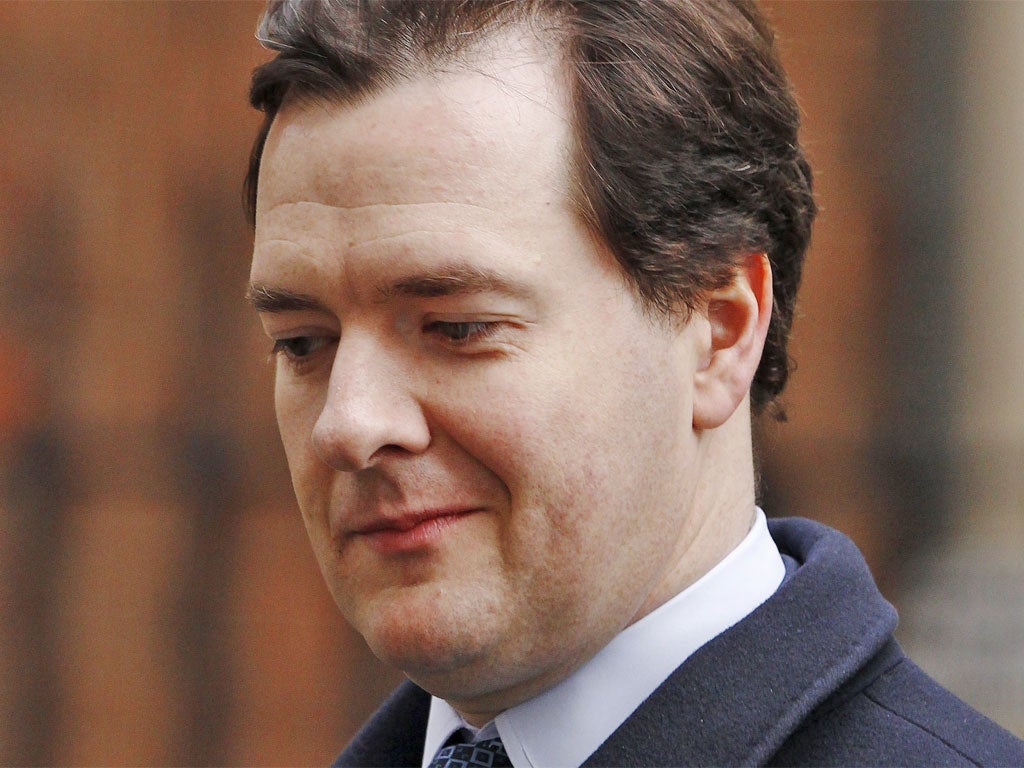
Coalition negotiations over Chancellor George Osborne's Budget are set to go down to the wire as the Tories and Liberal Democrats battle it out over tax cuts for top earners.
Following their return from the United States, David Cameron and Mr Osborne were holding a conference call with Nick Clegg and Treasury Chief Secretary Danny Alexander to discuss the latest proposals.
The "Quad" will then meet again on Monday to finalise the details - just two days before the Chancellor delivers his statement to MPs in the House of Commons.
Although today is the deadline for the Budget "scorecard" to be presented to the Office for Budget Responsibility so it can calculate the economic impact of the changes, No 10 indicated the negotiations would continue into next week.
"The OBR is an integral part of the Budget process and that process is ongoing," a Downing Street spokeswoman said.
The Lib Dems reacted to reports that Mr Osborne is planning to cut the 50p top rate of tax for people on incomes over £150,000 with a demand that any reduction is offset by new taxes on the wealthy.
Labour leader Ed Miliband denounced a tax cut "targeted at the richest people in Britain" as the "wrong priority".
"We should be spending our resources helping our young people who don't have jobs back into work," he told a Labour youth conference in Warwick.
A cut in the top rate of tax would be hugely popular with Tory MPs who believe it would provide a much-needed stimulus to enterprise and growth - as well as giving them a welcome "victory" within the coalition.
The Lib Dems - who have made a point of standing for "fairness" in the coalition - - said however that the priority must be easing the burden on the poorest by raising tax thresholds, taking more people out of tax.
The party issued a letter signed by 115 Lib Dem council leaders and council group leaders demanding the better off shoulder their fair share of the burden. Similar letters were issued by the Lib Dem leaders in the Scottish Parliament and the Welsh Assembly.
"One choice the Government should make is to ensure the wealthy pay their fair share and speed up the plan for the burden to be lifted on the poorest," the councillors said in their letter.
"This also means that if there is ever any reduction in the 50p top rate of income tax then new taxes that target the rich must be introduced so the wealthy pay their share."
Downing Street refused to be drawn on reports that Mr Osborne wanted to cut the top rate to 50p, describing them as "speculation".
However there was no attempt to disguise the fact that the two parties remained at odds over the Budget.
"We have a coalition government. Clearly, with two parties you are going to have different views on some issues. That is a normal part of coalition government," a No 10 spokeswoman said.
One industry that is set to benefit from next week's statement is high-end television production, with shows like Downton Abbey in line for a tax break worth tens of millions of pounds a year.
The Chancellor is expected to announce a consultation on extending to cinematic-style TV production the existing tax relief worth £100 million a year to the UK film industry.
TV companies could see their corporation tax burden reduced by about 20% to 25% as a result of the changes being considered.
Mr Osborne hopes to help British companies compete in the increasingly popular market for film-standard TV series, until now dominated by US hits like Mad Men and The Wire.
It is understood the relief will be aimed at "culturally British" programming to help support shows distinctive to the UK for export to the rest of the world.
"One of the ways the world sees Britain at its best is through world-class films and television made in Britain," said a Treasury source.
"They not only help us showcase the country but are also an important part of a dynamic and diversified economy.
"Tax relief for British films has been critical in ensuring that the industry continues to thrive."
PA
Subscribe to Independent Premium to bookmark this article
Want to bookmark your favourite articles and stories to read or reference later? Start your Independent Premium subscription today.

Join our commenting forum
Join thought-provoking conversations, follow other Independent readers and see their replies